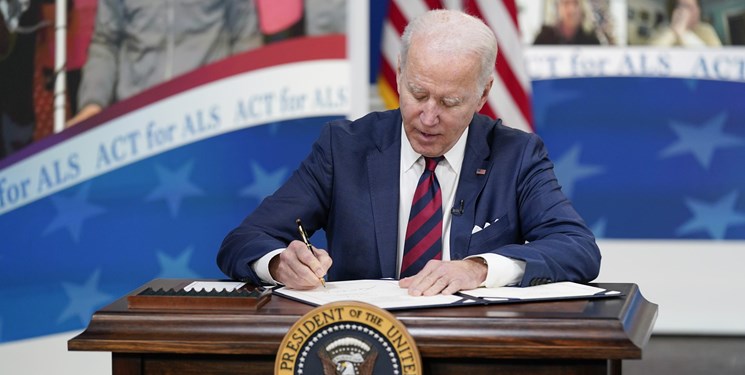In an interview with the website of the Strategic Council on Foreign Relations, Mostafa Najafi, while referring to the US agreement for the investment in northwestern and northeastern Syria, considered the pursuit of two main objectives as the focus of the US officials in the short-term, adding: Self-sufficiency, self-reliance and relative economic independence of the US-backed Kurds, and under the plan, the agricultural, construction, health network, oil purchases and financial sectors are to be exempt from the US sanctions.
Preparation for political independence of Syrian Kurds
The analyst of Syria affairs called the political and security independence of the Kurds in northern Syria another objective of the United States and continued: Certainly, economic independence of the Kurds in northern Syria can facilitate their political independence and this format can be in the form of an independent government and state, which is the most pessimistic scenario, and formation of an autonomous Kurdish territory, as we see in Iraq, is another scenario that can be predicted.
Saying that the investment in northwestern and northeastern Syria is an American project to give independence to the Kurds they support in the region, he referred to the existence of oil resources as well as the importance of the region to the United States and regarding the new US moves in the context of Russia’s involvement in the war in Ukraine and said: This decision shows that the US is not seeking to leave the country and will continue its security, political and economic objectives in Syria.
Referring to the Syrian government’s harsh and critical stance on the plan, Najafi stressed: If the Syrian government does not react strongly, the control and domination of the Syrian political system and the central government over the region may be drastically reduced. The US announcement that investors can make investment in the region from different areas, poses a significant economic challenge to the Syrian government, as much of Syria’s agriculture has been conducted in those areas over the past few decades. This could overshadow Syria’s food security and create many serious economic problems and crises.
Return of US to bases from which it had retreated
Saying that a large part of Syria’s oil wells and mines are located in the Kurdish part of the country, he pointed to the illegal extraction of oil by the United States in recent years from those areas, adding: Investment in those areas, beyond control of the central government, would cause a challenge to the territorial integrity and national sovereignty of the Syrian central government. This policy is definitely a big project that the United States has planned to bring the region to independence and autonomy under the pretext of confronting ISIS.
Najafi said that the United States was stealing Syria’s natural resources, oil and agricultural products at the same time with its military presence, adding: The United States is re-establishing itself in Syria and we see that after about two-o and a half years of Donald Trump’s decision to withdraw from Syria, the resettlement operation has begun in the country, and the news media have confirmed arrival of some equipment and specialists in the former base of the forces called the anti-ISIS coalition on the outskirts of the city of Ayn al-Arab in the north of Aleppo.
Opposition of Turkey with US plan
The expert on Syria affairs, meanwhile, said there were obstacles to the US decision, citing Turkish Foreign Minister Cavusoglu’s critical stance against the US decision for exemption of sanctions on areas where the Us-backed Kurds are living. He said: Turkish foreign minister had stated that the decision was with special motives and that the place to be chosen was Idlib, where millions of displaced people live. Turkey was one of the main opponents of the project; because in any case, this decision of the US Treasury Department overshadows the security and economic interests of Turkey in those areas.
Najafi continued: Since the beginning of the crisis in Syria, the United States has focused on advancing its objectives in the Kurdish regions of that country. At times, we even witnessed serious political and diplomatic crises between the United States and Turkey over US support for the Kurds. Although the United States is likely to leave its allies alone in critical situations, it has relatively backed them in the case of the Syrian Kurds, preferring a crisis with Turkey.
He added that the United States would not relinquish its support for the Kurds except through a major compromise with Turkey, which has not yet taken place, adding: Opposition from Turkey and Syria to US measures could lead to building security in the region, and investors are reluctant to stay in the region amid security condition.
The analyst of Syria affairs stressed: The US presence in Syria is illegal and that the US should now provide a major part of the economic needs of the Kurds in northern Syria. The smuggling of fuel and opium and the economic activities that take place in that country are completely contrary to the UN Charter and the sovereignty and territorial integrity of Syria. The claim of humanitarian action comes at a time when sanctions have caused the Syrian people a lot of suffering and created many security problems.
Najafi said: With these measures, the United States will continue to destabilize Syria, and this instability could pave the way for the re-emergence of terrorist groups in that country. This action re-highlights the hidden layers of the conflict in the region, including the Kurdish issue, and leaves a devastating effect on the activism of the actors in that region, and introduces new actors into the conflict-creating areas. Such conditions will not contribute to the stability of Syria and the region.










0 Comments